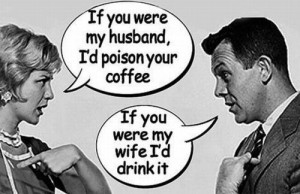
In our last blog we talked about the first two elements for the Value Triad: the Job to Be Done and the Effort involved. These form the foundation of perceived value. However they are not the whole picture, because how something makes us feel has a massive impact on how valuable we believe it to be.
More than just a job to be done
As I wrote previously, to many people a drill is just a way of making holes in the wall. This is always the definition of the Job to be Done, and for many people it will remain the most important part of the value triad. However for others there are other, less tangible values to owning an impressive power tool. In simple terms: it makes them feel good. There may be a sense of pride in its masculine strength, or pride in the shiny new possession that others will envy.
What drives us?
Our emotions are driven by our needs, in particular our social needs. Put simply we are driven to feel certain things and we will seek out the opportunities, experiences and products that we believe will elicit those feelings. So when we want to feel a little bit more manly and powerful, we might look for some new power tools that can allow us to feel exactly that. Therefore beyond the job that it does, a product also elicits certain emotions, based on its cultural meaning and this will affect how valuable it is. We can think of these needs as long-term outcomes that we want to achieve: we want to feel safe, so we choose insurance. We want to feel close to other people, so we get high speed broadband that will allow us to Skype.
How does your car make you feel?
The same product can of course elicit different emotions in different people. For example I may drive my 4×4 because it makes me feel safe that I am high up, provides a clear view of the road and makes me feel confident that I can cope with poor weather. Someone else may appreciate the fact that their 4×4 can take them to places that no-one else can get to, allowing them to pursue their adventure sports. Finally a third person may appreciate the same car as a symbol of their success and status: knowing that others will look at them with appreciation or envy.
Emotional payoffs
What is of course interesting is that for many of the things we buy, the emotional payoff will be significantly more important in helping us choose a brand than the job to be done or effort put into it. For most people it’s the satisfaction enjoyed in the emotional component of the value equation that makes the difference. After all, most cars will take us from A to B safely and reliably, it’s how we feel before, during and after that journey that really counts.
So it is vitally important that we understand what emotions different groups of customers want to feel, and whether they are getting that fulfilled by us, or whether they feel that the same emotion would be better met through a competitor.
Getting social means getting personal
Are you in charge of your brand’s emotions or are you leaving that to chance? What personality types and preferences are attracted to your brand and value propositions? If you have doubts about how to answer these questions then you’re going to find it hard to design and target value for customers who believe getting social means
getting personal.
Gareth English
____________________
